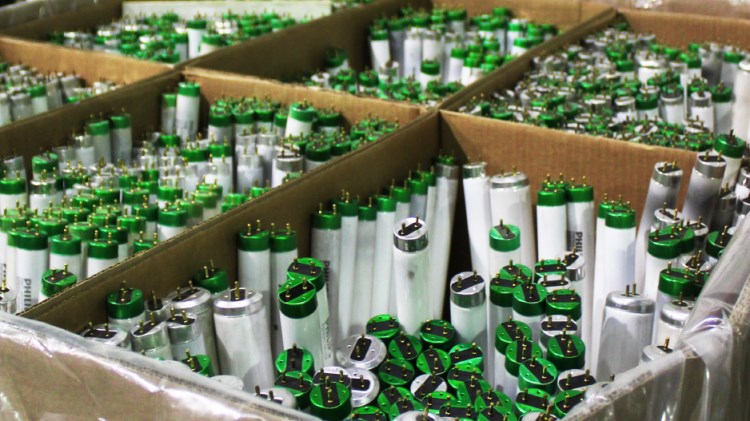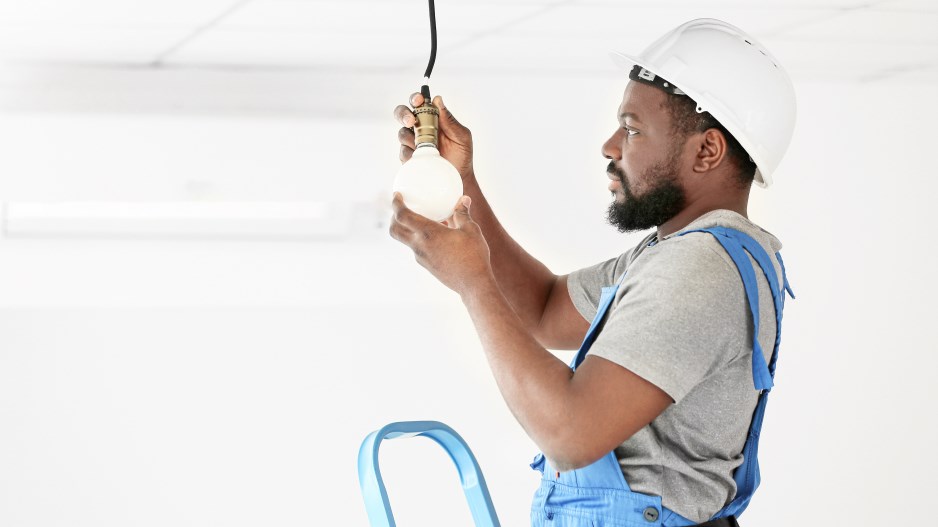Many different types of lights exist and your business is most likely using a range of them.
Some light bulbs contain small amounts of hazardous material that people aren’t aware of. For example, compact fluorescent lights, fluorescent tubes and high intensity discharge lights (HIDs) all have mercury in them. Here are three good reasons why your company should recycle its used lights.
The amount of mercury in these lights may seem small, but it’s enough to negatively impact the environment—possibly contaminating our soil and water sources—if not managed responsibly. While other types of lights may not contain hazardous material, they should still be recycled to avoid creating unneeded waste.
Fortunately, Product Care Recycling offers a free and convenient service for businesses and organizations to drop off many types of used lights, fixtures and ballasts at no cost, and there are more than 160 commercial volumes locations across B.C.
Larger volume producers may even qualify for free direct pick up.
“We make it easy for you to safely recycle your used lighting products by providing free drop-off or pickup,” says Wayne Chisholm, Product Care Recycling’s service and logistics manager for BC Lights.
As a not-for-profit organization that provides post-consumer recycling services across Canada, Product Care encourages individuals and businesses to reduce their waste, reusing and recycling items whenever possible.

Formerly known as LightRecycle, Product Care’s light recycling program was established in 2010, in response to B.C.’s Recycling Regulation. Since then, over 40 million light bulbs have been diverted from landfills and recycled.
Recycling light bulbs, tubes, and fixtures ensures that any hazardous materials they contain are managed responsibly, while the glass and metal components are recycled and used again, thereby conserving resources and diverting landfill waste.
Once used lights are dropped off at a recycling location, they are transported to an authorized processor. The processor sorts the lights by type and recycles them by manual or mechanical processing.
Watch: A video created by Product Care Recycling that visually explains the importance of light recycling.
“Recycling used lights demonstrates your organization’s commitment to environmental sustainability and can also reduce your waste disposal fees—so it’s a win-win!” Chisholm says.
By using Product Care’s recycling locator tool companies are able to find the commercial drop off location closest to them, where they can bring any quantity of bulbs and tubes up to one pallet. If you have one pallet or more of whole light bulbs (not crushed), you may be eligible for free pick up.
“That’s a huge perk if you’re a busy business, contractor, re-lamper, school, hospital, or building manager,” Chisholm says.
Lighting products commonly accepted for recycling include fluorescent bulbs and tubes, LED, incandescent, halogen, and UV bulbs, high intensity discharge, high-pressure sodium, metal halide bulbs and so much more.
“We really want B.C. businesses and organizations to know just how easy it is to recycle their used lighting products and encourage everyone to take advantage of our environmentally-friendly service,” says Chisholm.
To see if you qualify for Product Care’s free pick up service contact 1-888-811-6234 or [email protected] and visit productcare.org/BIV to learn how your organization can reduce its environmental footprint by recycling used lights.




